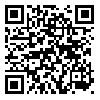Volume 14, Issue 10 (1-2015)
Modares Mechanical Engineering 2015, 14(10): 187-194 |
Back to browse issues page
Download citation:
BibTeX | RIS | EndNote | Medlars | ProCite | Reference Manager | RefWorks
Send citation to:



BibTeX | RIS | EndNote | Medlars | ProCite | Reference Manager | RefWorks
Send citation to:
Barimani A, Hosseinipour S J. Investigation of process parameters in production of cylindrical parts by gradient warm deep drawing. Modares Mechanical Engineering 2015; 14 (10) :187-194
URL: http://mme.modares.ac.ir/article-15-2199-en.html
URL: http://mme.modares.ac.ir/article-15-2199-en.html
Investigation of process parameters in production of cylindrical parts by gradient warm deep drawing
1- Babol university of Technology
Abstract: (4687 Views)
Aluminum alloys are using widely duo to high strength-to-density ratio in the industries of automotive, shipbuilding and aerospace as a substitution of steel sheets. .To increases the formability of aluminum alloys in deep drawing process and due to formability problems of these alloys in room temperature using of warm deep drawing process is necessary. According to recent researches, warm deep drawing in gradient condition has better results as isothermal case. In this paper the process parameters in production of cylindrical parts from aluminum alloys 5083 sheet with 2mm thickness is investigated. For this purpose, gradient warm deep drawing in temperatures of ambient (25˚C), 80˚C, 150˚C, 180˚C, 250˚C, 350˚C , 450˚C and 550˚C have been used. The blank in flange region is heated by die heating and the blank center to increases the strength of the region which contact with punch corner radius is cooled by water circulating punch. The results show that increasing the temperature of the blank in flange region and also cooling of blank center lead to improve the limit drawing ratio. In forming temperature of 550˚C and ram speed of 378 mm/min and lubrication by graphite powder can reach to the limit drawing ratio equal to 2.83.
Article Type: Research Article |
Subject:
Metal Forming
Received: 2013/12/24 | Accepted: 2014/01/22 | Published: 2014/09/28
Received: 2013/12/24 | Accepted: 2014/01/22 | Published: 2014/09/28
| Rights and permissions | |
 |
This work is licensed under a Creative Commons Attribution-NonCommercial 4.0 International License. |







